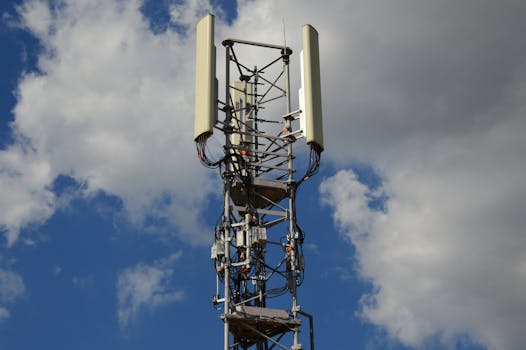5G Technology Advancements and Impact on Mobile Networks

5G Technology Advancements and Impact on Mobile Networks
5G technology advancements have been transforming the mobile network landscape, offering unparalleled speeds, lower latency, and greater connectivity. As the demand for faster and more reliable mobile networks continues to grow, 5G technology has become a crucial component in meeting these needs. In this article, we will delve into the latest 5G technology advancements and their impact on mobile networks.
Introduction to 5G Technology
5G, or fifth-generation wireless, is a wireless networking technology that promises to revolutionize the way we communicate and access information on the go. With speeds that are significantly faster than its predecessors, 5G technology offers a new level of mobile connectivity that is capable of supporting a wide range of applications, from enhanced mobile broadband to mission-critical communications.
The introduction of 5G technology has been made possible by the development of new radio access technologies, such as millimeter wave (mmWave) and massive multiple-input multiple-output (MIMO). These technologies have enabled the creation of high-capacity, low-latency mobile networks that can support the growing demand for mobile data.
Latest 5G Technology Advancements
One of the latest 5G technology advancements is the development of standalone (SA) 5G networks. SA 5G networks are designed to operate independently of existing 4G infrastructure, allowing for the creation of new, 5G-only networks that can take full advantage of the latest 5G technologies. This has enabled the deployment of 5G networks in new and innovative ways, such as in private networks and edge computing applications.
Another significant advancement in 5G technology is the development of network slicing. Network slicing allows multiple independent networks to coexist on the same physical infrastructure, each with its own set of optimized resources and performance characteristics. This has enabled the creation of customized networks that can meet the specific needs of different applications and use cases, such as IoT, mission-critical communications, and enhanced mobile broadband.
Impact on Mobile Networks
The introduction of 5G technology has had a significant impact on mobile networks, enabling the creation of faster, more reliable, and more secure networks. With 5G, mobile networks can support a wide range of applications, from enhanced mobile broadband to mission-critical communications, and can provide a new level of mobile connectivity that is capable of supporting the growing demand for mobile data.
One of the most significant impacts of 5G technology on mobile networks is the enablement of new use cases and applications. 5G technology has enabled the creation of new applications, such as augmented and virtual reality, that require high-speed, low-latency mobile connectivity. It has also enabled the deployment of mission-critical communications, such as public safety and emergency response, that require ultra-reliable and low-latency mobile connectivity.
Conclusion
In conclusion, 5G technology advancements have revolutionized the mobile network landscape, offering unparalleled speeds, lower latency, and greater connectivity. The latest 5G technology advancements, such as standalone 5G networks and network slicing, have enabled the creation of new, innovative mobile networks that can meet the specific needs of different applications and use cases. As the demand for faster and more reliable mobile networks continues to grow, 5G technology will play a crucial role in meeting these needs and enabling the creation of new, innovative applications and use cases.




